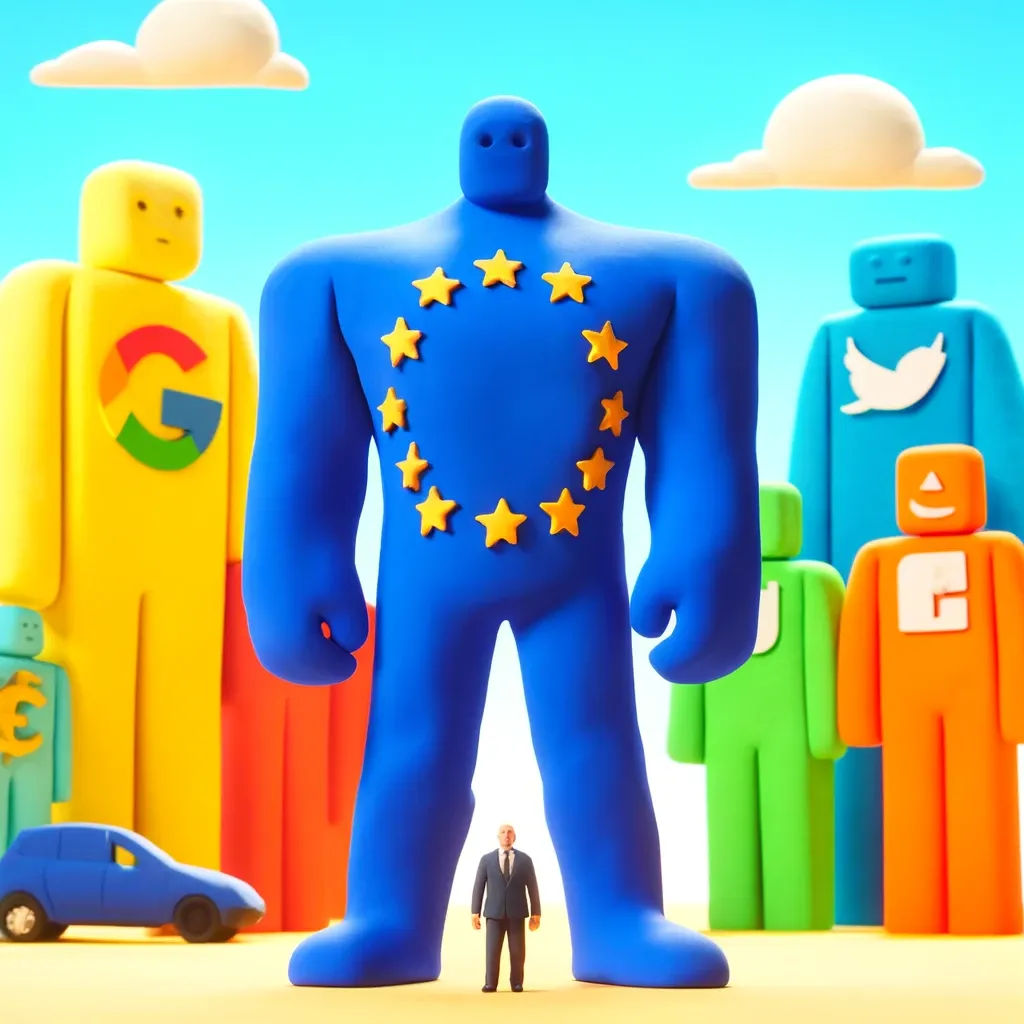
written by: Dev
God Bless the EU
These days the EU and its army of bureaucrats are the butt of many jokes about a continent that increasingly shuns innovation in favor of regulation*. While some of this criticism may be deserved, it’s also important to deliver praise where warranted. So, I’m happy to say thank God the EU is around to curb the excesses of American tech giants.
Companies like Apple create great products that add value to our lives, but that doesn’t mean we should give them free rein to engage in anti-consumer practices to pad their bottom lines. It’s great that the EU forced Apple to move to USB-C. Now I have an extra cord I can use with all of my devices, instead of just a handful of Apple products. And Apple has used the excuse of safety far too long to lockdown iOS, so the EU forcing Apple to allow sideloading and alternative app stores is another obvious win. Apple has no say in what I can download and run on my Macbook, so why should they when it comes to my phone? In response to this latest decree, Apple has resorted to pettiness and malicious compliance. First, Americans won’t get these new app stores. For now they’re exclusive to Europe. And even in Europe, Apple has outlined a number of onerous policies to make it difficult to start and is imposing a junk fee once apps — even those from alternative stores — pass a certain install count.
But Apple isn’t the only villain. A few months ago Elon Musk tweeted about setting up a new PC and his difficulty doing so without creating a Microsoft account. While it’s technically possible, Microsoft has done its best to obscure this fact and force users to jump through hoops. This is insane — the digital equivalent of hostile architecture. And it’s significant that Microsoft, once the target of monopoly investigations, now feels emboldened to act this way.
Though the US was once vigilant against large companies and the anti-competitive threat they pose, in the post-Reagan era a distinct strain of hyper-libertarianism came to define the American economic order. And that policy maintained that we should, more or less, let corporations do as they please. Recently this has begun to change, in large part, due to a new, muscular FTC led by Lina Khan, but it’s still very much a work in progress. Thankfully the EU has proven somewhat resistant to this ideology. So while the US abdicated its duties, the EU has emerged as our dark knight — the last cop on the beat preventing big tech from running roughshod.
As primitive man once plead to the sky father to smite his enemies, so too do I now plead to the EU to fine mine. If Microsoft and Apple continue what I’ve outlined above, please fine them. And if other American behemoths try the same, fine them too. The corporations and the politicians they purchased may cry foul, but the people are with you.
When it comes to regulating corporations, the US and EU are near opposite extremes of the spectrum, and there are good reasons for both to moderate their respective positions — the EU to promote growth and remain a relevant economic force going forward and the US to avoid techno-feudalism. Until that day — that more balanced promised land ahead — we are very fortunate that every once in a while the EU says, “No more” and stands in our defense.
*Just check the comments under this tweet.
 © 2024
© 2024